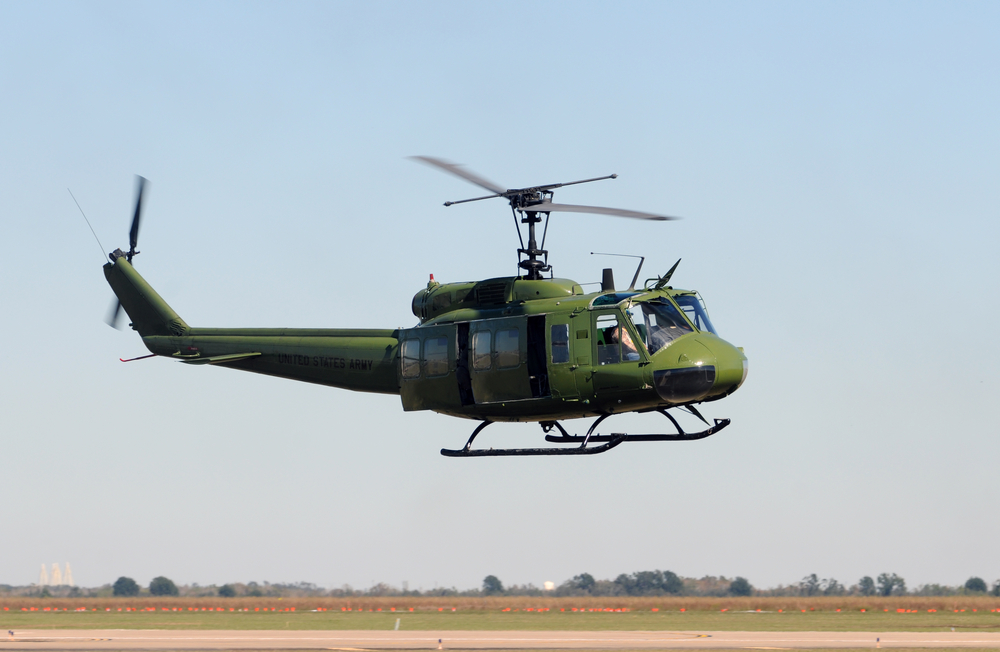


The Veterans of Foreign Wars (VFW) Post 1296 is in a blue-collar area of suburban Minneapolis. With a UH-1 “Huey” helicopter permanently touching down by its doors and an M1 57mm anti-tank gun ensuring members of the public park correctly, this location is particularly noteworthy because it shares a space with American Legion Post 550 — also sadly indicative of a shrinking legion of veterans and membership in veterans’ organizations nationwide. The old Legion Post, an unassuming brown brick building a few blocks away, was torn down years ago. I recall going there with my grandparents for the occasional hamburger, grousing about sore joints and the “youths,” and oblique remembrances of my grandfather’s old shipmates (he joined the Navy when he was 17, just in time to fight in the Battle of Okinawa, where he earned a Bronze Star). A Dairy Queen now squats in the Legion’s old lot.
My grandfather, Earle, died 20 years ago last month. His death reflects the shrinking pool of veterans in the United States. At the end of WWII, there were approximately 12.2 million people in the U.S. military. Today, there are about 1.3 million active-duty service members. So, in addition to draft-era veterans passing away, there are simply fewer active-duty military personnel and veterans, a troubling statistic for organizations that rely on these pools of people for membership and participation. Tom Tisthammer, a regular at Legion Post 550 and president of the local Legion Auxiliary, says of the declining membership and patronage, “Most posts aren’t geared toward families or younger people who are busy with their own lives. We have the occasional meat raffle and rib dinners for fundraising, but what you see is what you get.” He emphasizes that most people don’t know posts are open to the public, probably causing most people to eschew VFWs for other places — a challenging perception to overcome in a competitive restaurant environment.
The Vanishing Veteran
What does that mean for the average American? They’re unconsciously losing connection with the veterans in their midst. In decades past, a family could sit down to eat at a local diner and be reasonably confident that either someone at that table served, or at the very least, someone else in that diner served. Now, with less than one percent of Americans serving in the military in some capacity, it’s more likely no one in that diner has served or even has direct contact with an active duty or recently retired servicemember. When people think of VFWs or Legion clubs, they might envision a bunch of gray or balding, curmudgeonly old men nursing beers and catching up on the latest member of their group who won’t be attending the next reunion. While not untrue, the clubs have been and are much more, whether America recognizes it or not. (READ MORE: Veterans and Suicides: It’s Worse Than the VA Reports)
The American public is insulated from the realities of military life — especially war. Popular culture portrays veterans as broken creatures in films such as Taxi Driver, First Blood, or Born on the Fourth of July and associates military holidays such as Veterans Day or Memorial Day with mattress sales and opportunities for taking a long weekend off work. We haven’t just become a more religiously secular country; we’re also secular regarding service. These days of public honor have lost personal meaning and significance in a society competing for everyone’s attention and starved for gratitude and thankfulness. So, the veteran often goes unnoticed except for those organizations whose mission is the veteran.
The VFW’s Importance
Both the VFW and American Legion act as advocates for veterans, most recently successfully lobbying for the passage of the PACT Act, which was signed into law in August of last year. The legislation was the most significant healthcare expansion in Veterans Affairs history, extending benefits to veterans of the Vietnam War, Gulf War, and post-9/11 wars who were exposed to toxins associated with burn pits and Agent Orange. The groups also highlight the need for suicide prevention and homelessness resources.
However, these issues don’t encompass veterans’ continued commitment to service well after they served their time in active duty. For example, American Legion baseball has historically been the country’s premier league for high-school-aged boys. Legion posts sponsor teams, providing kids the opportunity to play baseball at an elite level at no cost — often, this benevolence is kids’ only exposure to veterans outside an annual appearance at Memorial Day parades.
The real treasure of VFW and Legions is the camaraderie and unspoken connection between people who have served. No matter what generation, theater of operation, service branch, or duty station, there is a level of understanding and stories to be told. (RELATED: Veterans of Wars Forgotten)
These are the places where patriotism never has to be questioned — where humble décor betrays fantastic life experiences, and duty, honor, and commitment are more than just words above the door. Steve DeZiel, who runs VFW Post 1296’s restaurant and bar, points to a wiry gentleman sitting stiffly over a clear Solo cup of beer at the bar. “We have a lot of regulars, like Don, a Korean vet. He comes almost every day, and it’s his only social place. Lots of guys here who could tell a good war story if you have the time.”
So consider finding your local VFW or Legion this Veterans Day and listening to a few stories — there’s a Don or Earle there who’d love the company. We may not see or hear from our veterans often, but they see and hear us. It’s past time we make the smallest of sacrifices: gratitude.
Jenna Stocker is editor and publisher of Thinking Minnesota, the quarterly magazine from the Center of the American Experiment. She is a former Marine Corps officer, a graduate of the University of Minnesota, and an enthusiastic Midwesterner.
MORE FROM JENNA STOCKER:
